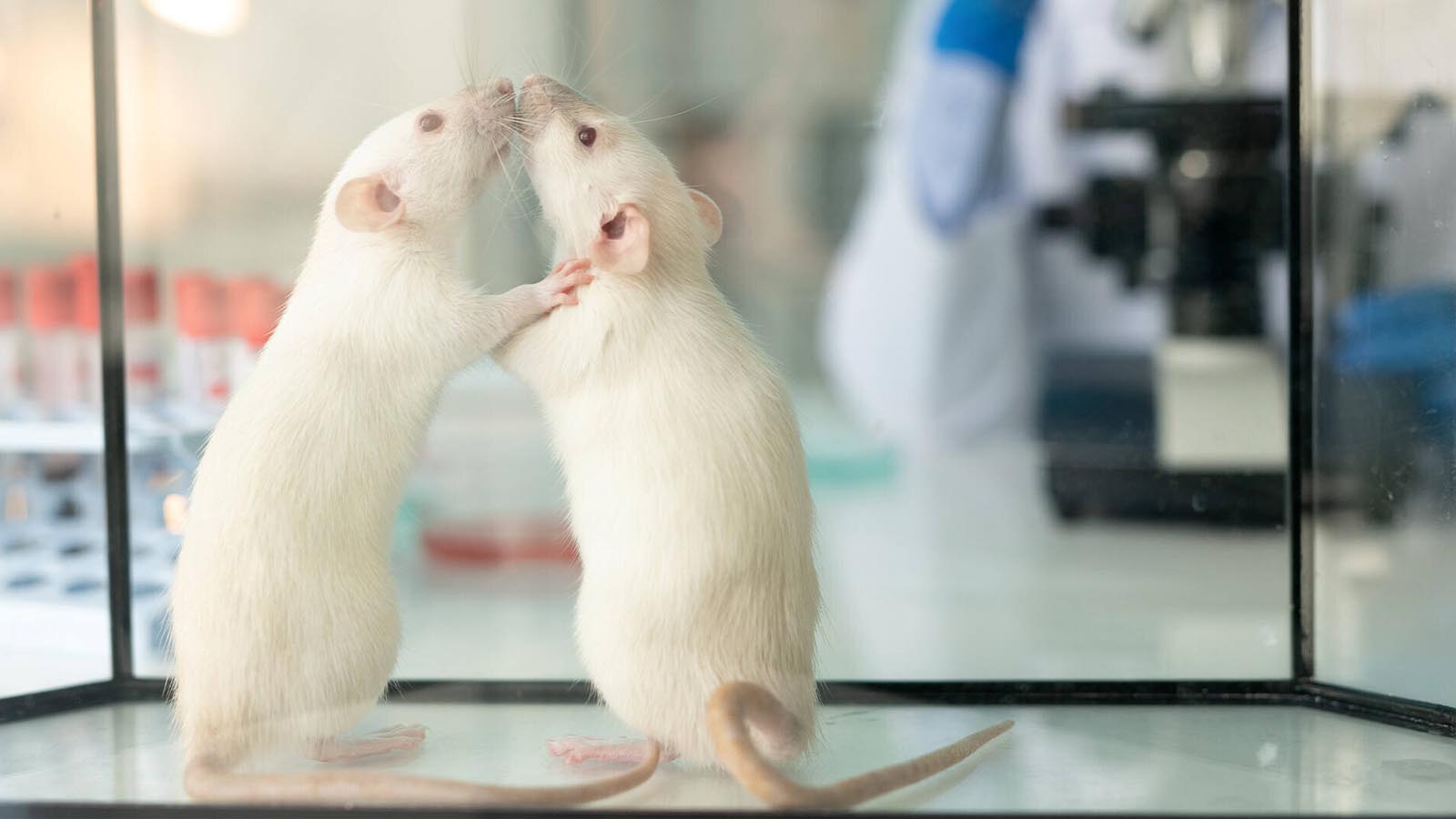Japanese researchers claim they’ve successfully created eggs using cells from two male mice, a scientific breakthrough they say could lead to two biological human males being able to reproduce.
The Guardian reports:
Previously scientists have created mice that technically had two biological fathers through a chain of elaborate steps, including genetic engineering. However, this is the first time viable eggs have been cultivated from male cells and marks a significant advance. [Kyushu University medical sciences professor Katsuhiko Hayashi‘s] team is now attempting to replicate this achievement with human cells, although there would be significant hurdles for the use of lab-grown eggs for clinical purposes, including establishing their safety.
The Guardian goes on to explain the process by which scientists were able to produce the eggs from male cells:
The study, which has been submitted for publication in a leading journal, relied on a sequence of intricate steps to transform a skin cell, carrying the male XY chromosome combination, into an egg, with the female XX version.
Male skin cells were reprogrammed into a stem cell-like state to create so-called induced pluripotent stem (iPS) cells. The Y-chromosome of these cells was then deleted and replaced by an X chromosome “borrowed” from another cell to produce iPS cells with two identical X chromosomes.
“The trick of this, the biggest trick, is the duplication of the X chromosome,” said Hayashi. “We really tried to establish a system to duplicate the X chromosome.”
Finally, the cells were cultivated in an ovary organoid, a culture system designed to replicate the conditions inside a mouse ovary. When the eggs were fertilised with normal sperm, the scientists obtained about 600 embryos, which were implanted into surrogate mice, resulting in the birth of seven mouse pups. The efficiency of about 1% was lower than the efficiency achieved with normal female-derived eggs, where about 5% of embryos went on to produce a live birth.
A previous experiment where researchers attempted to create mice embryos made from the DNA of two male mice resulted in offspring surviving less than two days.
Despite previous setbacks, Hayashi remains positive humans can soon have two dads.
“Purely in terms of technology, it will be possible [in humans] even in 10 years,” Hayashi stated according to The Guardian, adding he’d support the technology later being used by two men to have a baby.
“I don’t know whether they’ll be available for reproduction,” Hayashi told The Guardian. “That is not a question just for the scientific programme, but also for [society].”
Scientists’ initial motivation to conduct the research was purportedly to help women experiencing fertility issues, however the science now appears to be focused on aiding unnatural reproduction.
Commenting on the “fascinating” work, Harvard Medical School science Pro. George Daley told The Guardian the human reproduction cycle would be much more difficult to master.
“We still don’t understand enough of the unique biology of human gametogenesis to reproduce Hayashi’s provocative work in mice,” Daley said.
As far as the mice born from his latest research, Hayashi said, “They look OK, they look to be growing normally, they become fathers.”
UCLA Broad Stem Cell Research Center professor Amander Clark commented the team’s development was a “huge leap” in the science but that roadblocks still exist even in terms of creating lab grown eggs from female cells because scientists have yet to master the meiosis step in embryo development.
“We’re poised at this bottleneck at the moment,” Clark stated. “The next steps are an engineering challenge. But getting through that could be 10 years or 20 years.”
The scientific community seems to have no qualms about hurdling faster toward the nightmare future envisioned in Aldous Huxley’s Brave New World, despite the dystopian novel’s prescient warnings about the inherent moral and ethical dangers of creating an artificial society.
The Guardian’s article announcing females could soon be phased out of the reproductive process was ironically published on International Women’s Day.
















And I am sure it is paid for by our tax dollars, “WHY” I think women have done a fine jobs having kids for the last 2000 years plus, why try to change now?
Read a lot of comments here. No one seems to realize what this means, like, what happens next? Will these man-manipulated specimens then ‘go on’ to make MORE like themselves??? No. They will be sterile, and none of them will be a female counterpart for reproduction, since they took the DNA from Males. What if they took it from a Female rat? I don’t know, but it would be ‘sterile’, so it still wouldn’t matter! A male could only produce a ‘male’ from its cells. It wouldn’t increase anything. And either would be a ‘sterile’ rat. We learned about ‘cloning’ like this in the 90’s, I think it was. This gen. wants SO BAD to be able to show that ‘females’ aren’t required anymore! But they never will. You can’t put a scientist in every back alley to abuse the rats there.